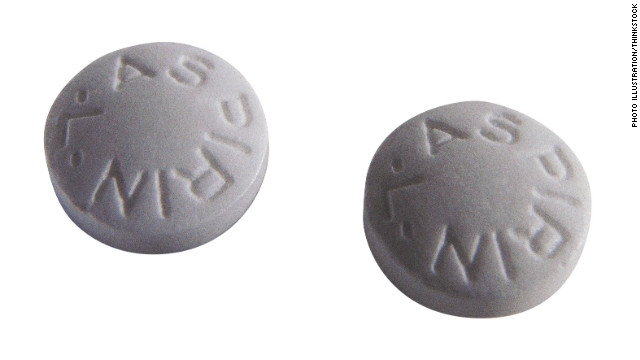
A new report in the journal Nature Reviews Clinical Oncology suggests that we could be inching closer to using aspirin as part of clinical guidelines in cancer prevention.
The U.S. Preventive Services Task Force encourages an aspirin regimen for some patients to prevent heart problems and strokes.
Aspirin has also been shown to reduce the risk of colorectal cancer and colorectal polyps. Although taking aspirin daily has some promising benefits, it can also raise the risk of gastrointestinal bleeding.
The report released this week looked at recent studies of aspirin’s impact on cancer prevention. In March, two studies published in the Lancet and one in Lancet Oncology suggested that aspirin could have protective effects against various types of cancer.
“Recently published meta-analyses of results from randomized trials of daily aspirin treatment to prevent vascular events... have provided provocative evidence that daily aspirin at doses of 75 mg and above might lower both overall cancer incidence and overall cancer mortality,” wrote Michael Thun, vice president emeritus of epidemiology and surveillance research for the American Cancer Society and the co-authors in the article.
“Recently published meta-analyses of results from randomized trials of daily aspirin treatment to prevent vascular events... have provided provocative evidence that daily aspirin at doses of 75 mg and above might lower both overall cancer incidence and overall cancer mortality,” wrote Michael Thun, vice president emeritus of epidemiology and surveillance research for the American Cancer Society and the co-authors in the article.
They looked at the results of six trials in which the group taking daily aspirin had approximately a 20% reduction in cancer incidence between three and five years, and a 30% reduction after more than five years.
“Even a 10% reduction in overall cancer incidence from aspirin treatment would substantially broaden the indication for treatment in populations at average risk,” the authors wrote.
The mechanics of how aspirin works in cancer prevention is not known. It appears that the chemopreventive effects occur at low doses (75-160 milligram) and using a higher does not seem to provide greater protection.
“Several important questions remain unanswered, such as the exact magnitude of the overall cancer benefit and which individual cancer sites contribute to this benefit,” the authors wrote.
“However, these new data bring us considerably closer to the time when cancer prevention can be integrated into the clinical guidelines for prophylactic treatment following regulatory review by the FDA and the European Medicines Agency.”
Aucun commentaire:
Enregistrer un commentaire
welcome